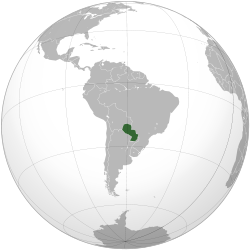Paraguay: No More Restrictions To Transgenic Corn
Paraguay’s Health and Social Welfare Ministry’s Aug. 6 approbation of the consumption of genetically modified corn VT Triple Pro, produced by US-based transnational corporation Monsanto, was described by peasant organizations as “an attack against peasant culture and food sovereignty.” The approbation made transgenic corn available for human consumption as it considered transgenic corn innocuous for human health.
“Now Monsanto will be able to legalize its seeds and expand its business,” said Tomás Zayas, leader of the Alto Paraná Farmers Association, to the non-governmental organization Base Investigaciones Sociales, or BaseIS.

Zayas added that farmers are worried about the possible genetic contamination of national corn and the health effects of consuming this transgenic corn variety.
With the introduction of transgenic corn, BaseIS warned that “the ancestral indigenous and peasant diet, economy, genetics and culture could undergo deep changes as native crop species will be displaced, generating a dependence on planted seeds.”
Although the 1993 Environmental Impact Assessment Law banned genetically modified corn, last January the government of overthrown President Fernando Lugo (2008-2012) authorized Monsanto to experimentally cultivate transgenic corn. However, the new regime, headed by Fernando Franco, has encouraged the use of genetically modified corn and other seeds.
At the beginning of July, a few days after the parliamentary coup that removed President Lugo on June 22, the National Service for the Health and Quality of Plants and Seeds, or SENAVE, which regulates the use of agricultural chemicals, authorized the cultivation of transgenic cotton.
In a press release, the Paraguayan Environmental Organizations Network indicated that SENAVE’s current authorities promote “an agricultural model that submits farmers to an economic dependence on a technological package that includes patented seeds and high use of agricultural supplies, including toxic agricultural chemicals. Additionally, the possible human health hazards, food security dangers, and biodiversity damages are uncertain”.
Transgenic corn and cotton will now be cultivated, in addition to genetically modified soy, which has been cultivated in Paraguay for several years. According to the Pesticides and its Alternatives in Latin America Network, 80 percent of the almost 3 million hectares (7.5 million acres) of soy that are planted in Paraguay are of the genetically modified variety.
